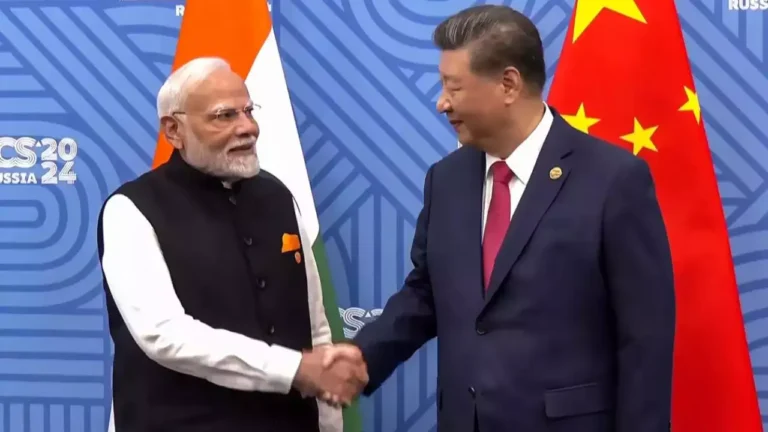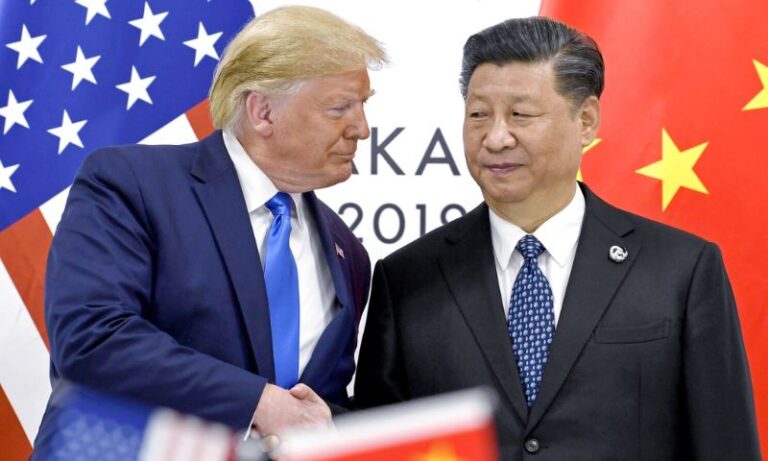US-China Relations on the Brink: Global Economic and Political Implications

The relationship between the United States and China is deteriorating rapidly, with significant implications for global stability and economic growth. As both nations increasingly view each other as strategic and economic threats, experts warn of a potential geopolitical and economic split that could reshape international relations and markets.
Economic Decoupling and Global Risks
The International Monetary Fund (IMF) has raised concerns about the economic consequences of a US-China split. According to the IMF, such a division could hinder foreign investment and lower global GDP. In one scenario, a fragmented world divided into US- and China-centered blocs could see global output fall by 1% in five years and 2% in the long term. This fragmentation risks damaging the global economy, with foreign direct investment and other capital increasingly being channeled toward aligned blocs of countries .
Long-term investments in factories and financial markets have already begun to show the effects of growing mistrust between Washington and Beijing. The IMF notes that firms and policymakers are increasingly looking at strategies for moving production processes to trusted countries with aligned political preferences to make supply chains less vulnerable to geopolitical tensions. This shift, often referred to as “friend-shoring,” suggests a significant change in cross-border capital flows .
Political and Strategic Tensions

Beyond economic concerns, political and strategic tensions are escalating. Disputes over Taiwan, technology security, and allegations of espionage have intensified the rivalry. The United Nations Secretary-General has warned that the US-China relationship is “completely dysfunctional” and that a new cold war could split the world in two, making global challenges like climate change and pandemics harder to address .
Implications for Global Trade
Despite political frictions, trade between the US and China reached a record $690.6 billion in 2022. However, this deepening trade relationship is at risk due to the widening split between Washington and Beijing, which have clashed on issues including human rights, trade, and competition for technology and markets. The US is pressing ahead with plans to curb China’s access to sensitive semiconductor technology and is encouraging allied countries to do the same .
Conclusion
The escalating tensions between the US and China pose significant risks to global economic stability and international cooperation. As both nations navigate this complex relationship, the world watches closely, aware that the outcomes will have far-reaching consequences for global trade, investment, and geopolitical dynamics.
The intensifying friction between the United States and China is reshaping not just their bilateral relationship but also the global economic and geopolitical landscape. As both nations pursue competing visions of global leadership, other countries and markets find themselves navigating a world marked by growing uncertainty, shifting alliances, and economic realignments. The implications go beyond tariffs and trade imbalances, touching on technology, security, supply chains, and global governance. While the rivalry brings challenges, it also opens opportunities for emerging economies to play a more prominent role. Moving forward, the stability of the global system will depend on whether the US and China can establish new mechanisms to manage competition, prevent escalation, and cooperate in areas of shared interest.
🔻 Trusted Source Links:
1️⃣ Council on Foreign Relations — The U.S.-China Relationship
A comprehensive and regularly updated overview of the key flashpoints, diplomatic tensions, and economic stakes involved in the evolving U.S.-China relationship.
2️⃣ Carnegie Endowment for International Peace — The Future of U.S.-China Relations
An in-depth analysis exploring the long-term strategic challenges and opportunities facing both countries as competition and interdependence continue to shape their future relations.





